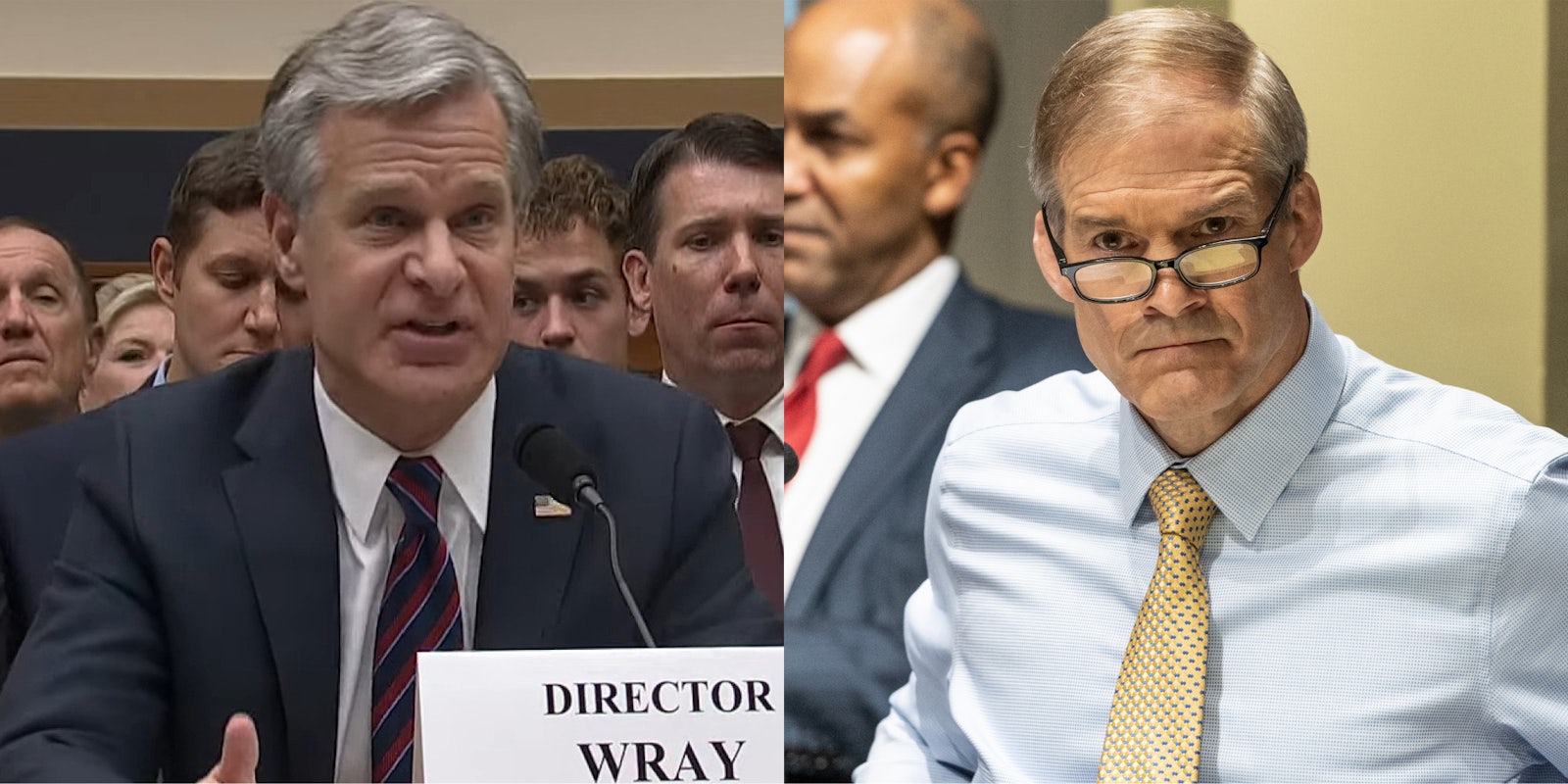The Federal Bureau of Investigations (FBI) planned to infiltrate Catholic churches and recruit clergy and other church officials to inform on allegedly suspicious parishioners deemed capable of attracting attention from extremist groups, according to recently surfaced documentation that’s sparked controversy.
After the memo went public, the Republican-led House Judiciary Committee initiated an inquiry to determine if the FBI’s action toward the Catholic Church violated First Amendment rights.
On Feb. 8 of this year, Washington, D.C.-based website Uncover DC published information received from an alleged FBI source titled: “Interest in Racially Motivated Violent Extremists in Radical Traditionalist Catholic Ideology.”
The Jan. 23-dated directive details how the Richmond, Virginia field office of the nation’s top law enforcement agency used an undercover agent to infiltrate area houses of worship and planned to recruit clergy members and church administrators to inform on parishioners and report any actions they deemed inappropriate or subversive.
Additionally, the article claims that traditionalist Catholics, particularly those worshiping in traditional Latin Mass services, might attract attention from far right-wing nationalists, hate groups, or domestic terrorist organizations looking to recruit.
Latin Mass, also known as the Tridentine Mass, is conducted in Latin and gained in popularity among conservative individuals and groups in recent times.
The website’s inside source brought this document to retired Air Force Veteran and UncoverDC contributor Kyle Seraphin. This former FBI field agent authored the whistleblowing piece and has been a vocal critic of his former employer’s actions since his dismissal from the agency last year for reasons he says were never made clear to him.
Seraphin wrote that the Bureau greatly exceeded its bounds and infringed on American citizens’ First Amendment privileges, such as the right to free speech and the freedom to peacefully assemble.
Seraphin’s work quickly garnered attention from Congress.
On Feb. 16, the House’s Judiciary Committee, led by Chairman Jim Jordan (R-Ohio) and Rep. Mike Johnson (R-La.), expressed serious concerns and called on the FBI and Director Christopher Wray to provide answers and submit the document in question for committee review.
In early March, Wray appeared before the Senate Judiciary Committee to speak about the Jan. 6 Capitol riot. During these proceedings, committee members also asked Wray about the actions of the Bureau’s Richmond field office,
The director stressed that the practice of targeting individuals based on their religious or cultural affiliations is not FBI policy and violates strict Bureau standards. Wray also claimed the effort was limited solely to the Richmond field office.
The House Judiciary Committee sent a second request to review the document on March 20. On March 23, the FBI responded but provided the committee with what its members deemed a substandard, incomplete, and heavily redacted version that prevented committee members from drawing any firm conclusions.
In April, Jordan and his legislative colleagues subpoenaed the original memo for further review.
By July, the House Judiciary Committee called Wray to testify before the legislative body. Jordan and several committee colleagues lambasted the director, accusing him and his agency of betraying public trust and demonstrating an obvious and disturbing bias towards conservatives.
Furthermore, the committee submitted to Wray a letter threatening to hold the director in contempt should he and his agency continue to evade its requests for further clarity on the matter.
During testimony that often turned contentious, Wray reiterated that his agency does not single out individuals based on any religious, cultural, or personal beliefs.
“The idea that I’m biased seems somewhat insane to me,” Wray added.
Jordan disagreed with Wray’s take.
“This is a violent extremism investigation against Catholic Americans,” Jordan said.
Not everyone questioned the FBI’s motives, though. Those supporting the Bureau’s actions include Sen. Tim Kaine (D-Va).
“I think the key is communication,” said Kaine. “If the FBI has a concern like that, then go to the church leaders and say ‘Hey look, we have a concern and we don’t want your members to get unwittingly caught up in something.’”
The Catholic community, however, expressed outrage. The United States Conference of Catholic Bishops (UNCCB) labeled the FBI memo religious profiling.
“This memo is a threat to religious liberty,” said Bishop Barry Knestout, a member of the Richmond, Virginia diocese.



